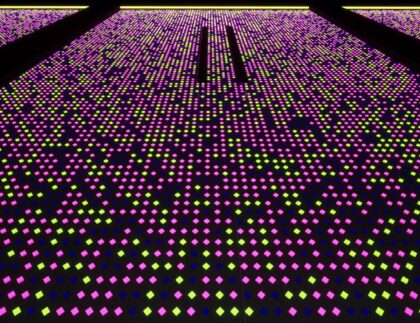
In the realm of technology, two powerful forces are converging to reshape industries, revolutionize processes, and redefine the way we interact with software: Artificial Intelligence (AI) and Software Development. As these two domains intersect, a world of exciting possibilities unfolds, promising a future that is smarter, more efficient, and filled with innovations that were once the stuff of science fiction.
The Evolution of AI and Software Development
Before we delve into the possibilities of this intersection, it's crucial to understand the evolution of AI and software development.
Artificial Intelligence, the science of creating intelligent machines, has come a long way since its inception. Early AI systems were rule-based and limited in their capabilities. However, recent advancements in machine learning, deep learning, and neural networks have propelled AI into a new era. AI can now understand natural language, recognize patterns in vast datasets, and make decisions akin to human cognition.
Software development, on the other hand, has been the backbone of technological progress for decades. It encompasses the creation of applications, websites, and systems that power our digital world. Developers have continually sought ways to enhance user experiences, streamline processes, and automate tasks.
The Synergy of AI and Software Development
The synergy between AI and software development is a game-changer. Here's how:
Enhanced Automation: AI enables software to become more intuitive and adaptive. Automated chatbots, for instance, use AI to understand user queries and provide relevant responses, enhancing customer support.
Predictive Analytics: AI-driven software can analyze vast datasets to predict outcomes and trends. This capability is invaluable in fields like finance for risk assessment and in healthcare for disease diagnosis.
Personalization: AI-powered software can deliver highly personalized experiences. For example, streaming services use AI algorithms to recommend content based on user preferences.
Natural Language Processing (NLP): NLP, a subset of AI, empowers software to understand and respond to human language. Virtual assistants like Siri and Alexa are prime examples.
Autonomous Systems: AI is driving the development of autonomous systems, such as self-driving cars and drones, where software plays a critical role in decision-making and navigation.
Efficiency Gains: AI-driven software can automate routine tasks, freeing up human resources for more creative and strategic work.
Exploring Possibilities
The possibilities arising from the intersection of AI and software development are vast:
- Healthcare Revolution: AI-driven software can assist doctors in diagnosing diseases, predict patient outcomes, and personalize treatment plans. Remote patient monitoring and telemedicine applications are also benefiting from this synergy.
- Smarter Cities: Urban planning is becoming more data-driven, with AI-powered software optimizing traffic management, energy consumption, and waste management in smart cities.
- Financial Innovation: AI-driven trading algorithms are making rapid decisions in financial markets. Moreover, AI-enhanced customer service is becoming the norm in the banking sector.
- Enhanced Security: AI-powered cybersecurity solutions can detect and respond to threats in real-time, safeguarding sensitive data and networks.
- Education Transformation: AI-driven educational software can adapt to individual learning styles, offering personalized lessons and feedback.
- Content Creation: AI can assist in content creation, from generating news articles to producing art and music.
- Manufacturing Efficiency: AI-driven software is optimizing supply chains, improving quality control, and enabling predictive maintenance in manufacturing.
The Ethical Dimension
As AI and software development continue to intersect, ethical considerations become paramount. Issues related to data privacy, bias in AI algorithms, and the potential for job displacement must be addressed responsibly.
Conclusion
The intersection of AI and software development holds immense promise. It is a journey into a future where intelligent software empowers industries, augments human capabilities, and reshapes the way we live and work. As we explore these possibilities, it's essential to proceed with a commitment to ethical development, ensuring that the benefits of this convergence are realized for the greater good.




